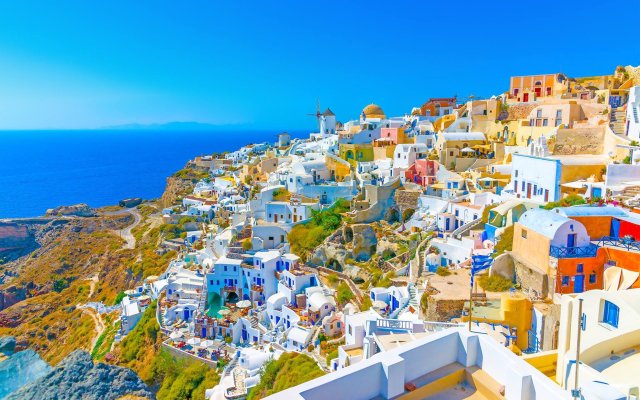The mainland has rugged mountains, forests, and lakes, but the country is well known for the thousands of islands dotting the blue Aegean Sea to the east, the Mediterranean Sea to the south, and the Ionian Sea to the west.The country is divided into three geographical regions: the mainland, the islands, and Peloponnese, the peninsula south of the mainland.
The Pindus mountain range on the mainland contains one of the world's deepest gorges, Vikos Gorge, which plunges 3,600 feet. Mount Olympus is Greece's highest mountain at 9,570 feet above sea level. Ancient Greeks believed it was the home of the gods. Mount Olympus became the first national park in Greece.
Family life is a very important part of life in Greece. Children often live with their parents even after they get married. Greeks live long lives and it is thought that their varied diet of olives, olive oil, lamb, fish, squid, chickpeas, and lots of fruits and vegetables keep them healthy.
Nearly two-thirds of the people live in large cities. Athens is the largest city, with over 3.7 million people crowding the metropolis. Nefos, the Greek term for smog, is a big problem in Athens. The Parthenon, the temple to goddess Athena atop the Acropolis, is deteriorating due to pollution and acid rain. Olive trees have been cultivated in Greece for over 6,000 years. Every village has its own olive groves.
Greece abolished their monarchy in 1975 and became a parliamentary republic. Under the new constitution, there is a president and a prime minister. The prime minister has the most power, and is the leader of the party that has the most seats in the parliament. The president selects cabinet ministers who run government departments.
The parliament, called the Vouli, has only one house with 300 members who are elected every four years. Greece became part of the European Union in 1981.

